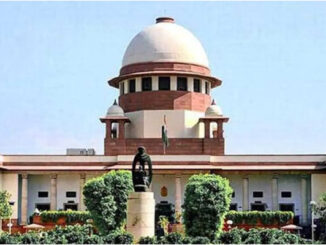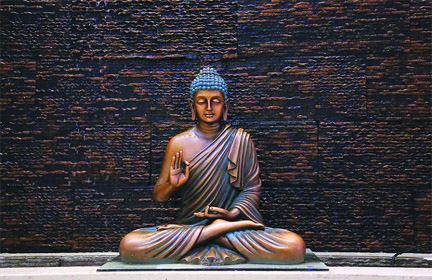
New Delhi (TIP)- As senior AAP leader and former Delhi Deputy Chief Minister Manish Sisodia remains in jail for more than seven months in connection with Delhi excise scam cases, the Supreme Court on Thursday posed searching questions to the Enforcement Directorate (ED), flagging the absence of money trail linking him to the proceeds of alleged crime.
“Sisodia is not there in the money trail… How are you bringing him under the Prevention of Money Laundering Act? Without any money trail, the case against him will falter. Sisodia never used the tainted money,” a Bench led by Justice Sanjiv Khanna told Additional Solicitor General SV Raju, who represented the ED.
Noting that a money laundering case required tracking the tainted money, it said the ED would have to establish the money chain…that the money had flown from the liquor lobby to the principal accused. While hearing Sisodia’s bail plea for the second consecutive day, the Bench said the probe agency could not have Sisodia as the main offender without establishing the transfer and possession of funds. Sisodia never possessed or used the tainted money, it observed.
“The money trail does not come back to him (Sisodia)…the money does not come to his pocket…there’s not even a case of vicarious liability, with money flowing to a company owned by him,” the Bench noted. Responding to the questions from the Bench, Raju said, “The question is: Is he not directly or indirectly involved in illegal activity or process…when you make a policy that triggers bribes which act as proceeds of crime.” However, the Bench pointed out that “generation of money is not an offence under Section 3 (of the PMLA).” As Raju said, “Unless money exists, you cannot put it to use,” the Bench said, “It may be a lacuna (generation of money not being an offence under the PMLA)… But then problems may come up.” Raju said the scam was done through a change in the excise policy. “Earlier, 5 per cent (duty) was the minimum and 12 per cent the maximum. No one will keep it more than 5 per cent; therefore to make it certain they fixed it at 12 per cent to benefit some. That is criminal mischief, therefore, the offence,” Raju said. However, the Bench said a policy change, even if wrong, would not attract criminality without money consideration.
“We understand that there is a policy change. Everyone will support policies good for their business. Pressure groups are always there. Policy changes, even if wrong, without money consideration will not matter. It’s the money part which makes it an offence. If we go to an extent to say that there cannot be any pressure groups, no government can continue… Lobbying will always be there. Of course, we’re not saying that bribes can be accepted,” the Bench said. As arguments on Sisodia’s bail plea remained inconclusive, the Bench – which also included Justice SVN Bhatti — deferred the hearing to October 12.
Source: TNS





Be the first to comment